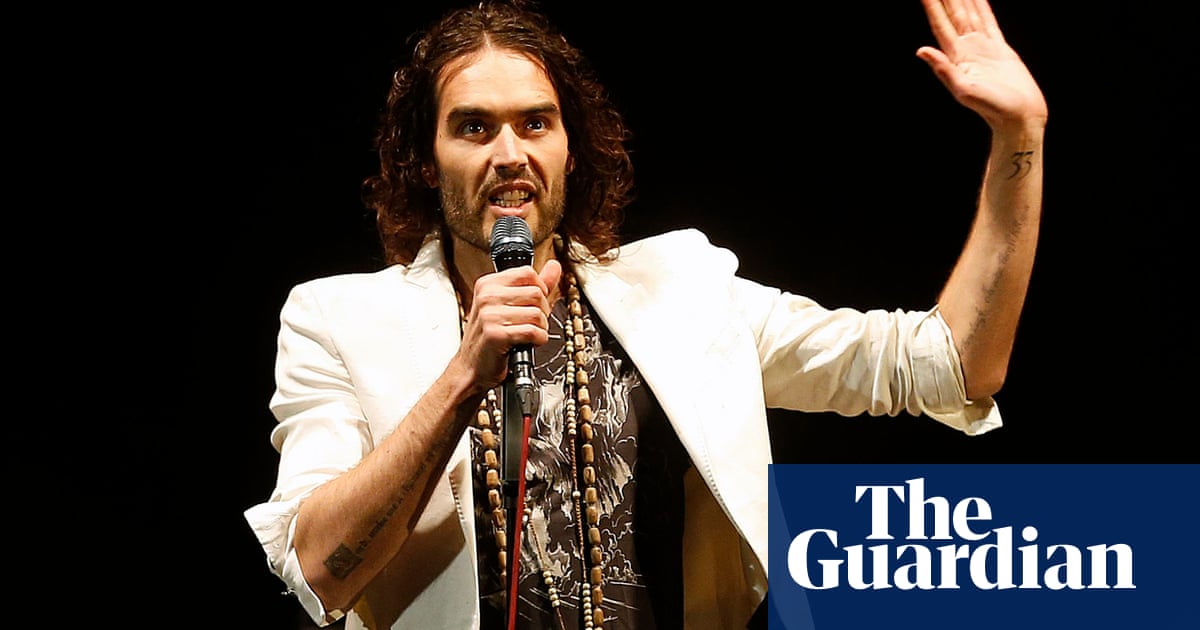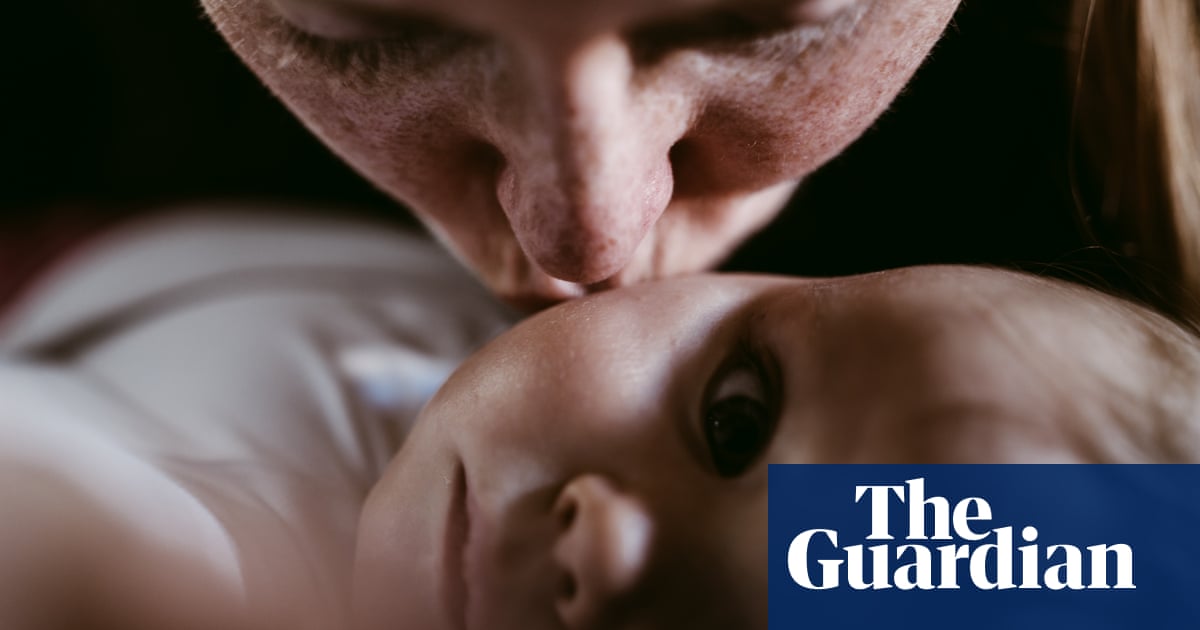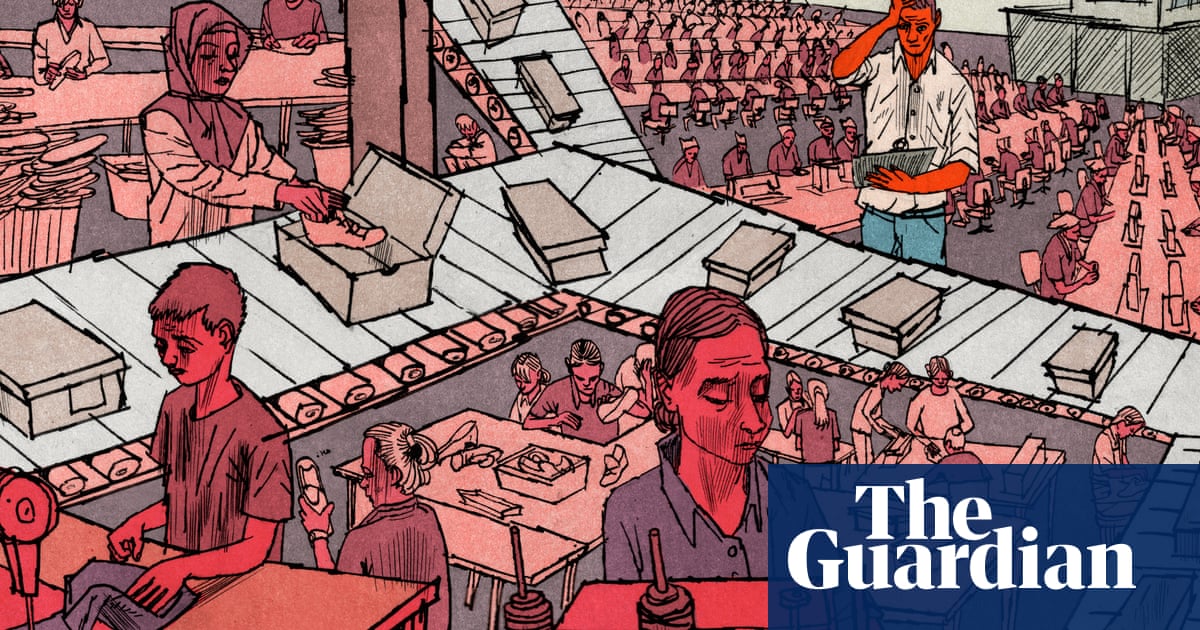
“When I was 18 I had an incident with a powerful male comedian in his 30s,” says Lucy (name changed), a female comic in her early 30s. “It was really harrowing and triggering. But when I raised it with other comics at the time they just encouraged me to use the incident as comedy material.”
This experience, Lucy says, demonstrates why comedians are reluctant to come forward about inappropriate behaviour, harassment or abuse.
“If you’ve created a society where we all laugh at that behaviour, or are expected to laugh at that behaviour, you’re going to make people feel like their feelings don’t matter, that their interpretation of the event is flawed or they’re being oversensitive. I felt great shame for years, whilst that male comedian went on to do incredibly well.”
Lucy is one of many female comedians who say the allegations against Russell Brand are just the tip of the iceberg. Six years on from the #MeToo movement, they say there remains a culture of misogyny and male privilege in the comedy industry that emboldens predators and prevents women from speaking out.
In a video on YouTube titled Brand Awareness, the comedian Kate Smurthwaite said the allegations against Brand were “nowhere near scratching the surface” of the wider problems.
“I could probably, personally from my own experience, name 15 to 20 people who have behaved inappropriately with me. And if I then included other women in comedy and the stories that they’ve told me, we could easily get that to 100 to 150,” she said.
“There are so, so many others. And I know some people will say: ‘Well tell us the other names.’ But no, I’ve done it before, I’ve described these incidents and people don’t hear me, they don’t believe me. They say: ‘That’s a very serious allegation, I hope you’ve taken it to the police,’ and ultimately I lose work. And I can’t do that over and over again.”
Ellie Tomsett, a media lecturer at the University of Birmingham who has been researching the barriers to women’s participation in the comedy circuit, said the problem was entrenched in the history of UK comedy.
“Since the days of performances in working men’s clubs in the 60s, comedy has targeted women, and we’ve got this really long hangover from that,” she said. “There might be more women visibly present on stage or on our screens now, but the actual working conditions for comics have been remarkably consistent. That’s what creates that space where abuse can flourish.”
According to Tomsett, the problem is threefold: comedy – in its live and media forms – continues to be male-dominated, it is used to obscure sexually aggressive behaviour and misogyny, and women struggle to speak up due to unregulated power structures and the precarious nature of freelancing.
On top of that, women who do complain are often accused of being humourless prudes, when their careers depend on their ability to “see the funny side”.
“Comic licence makes it easy for men to say: ‘I was just joking, that woman doesn’t understand what comedy is.’ If you make accusations against someone who’s bankable for a promoter, then you’re putting yourself in a very dangerous situation.”
Hazel O’Keefe, a comedy promoter who founded Laughing Cows Comedy and the Women in Comedy festival – platforms that showcase female comics – said the “deeply rooted sexism” in the scene needed to be urgently addressed.
“I founded Laughing Cows in 1998 as a response to asking comedy bookers and promoters why there was never more than one female on the bill, to the response: ‘I wouldn’t take that risk.’ A lot has changed since then but we’re still nowhere near where we need to be,” O’Keefe said.
“The nature of the live comedy industry means that comics are often working in isolation and under extremely sexist environments. Professional interactions are often sexualised, but it’s often very difficult to report due to power dynamics and the risk of losing work and being further isolated from the comedy scene.”
O’Keefe said the problem was “not limited to one or two individuals; it’s potentially hundreds of people who are crossing lines and breaking laws”.
Jessica Toomey, who runs the Frog and Bucket comedy club in Manchester and is a member of the Live Comedy Association board, said programmers and bookers were essentially the gatekeepers of many comics’ careers.
“The last three years have been financially tough on our industry and women must choose between refusing to work with sexist or abusive men and paying their rent. And misogyny will wrongly allow women to be labelled as awkward, difficult to work with or problematic the minute they try and tackle any of their concerns.”
Last year, after the comedian Katherine Ryan revealed she had confronted a “sexual predator” she worked with, Jackie Clune wrote about her own sexual assault on live TV. “Hollywood has been exposed as a handsy hellhole in recent years – and now it’s high time a light was shone on the world of comedy,” she said.
Other comedians have previously told the Guardian that sexism and, sometimes, sexual assault were considered perils of the job.
“I think the bigger issue is, why are the agents and promoters not held more accountable?” Lucy says. “These things don’t just happen in isolation. You don’t have HR in the comedy industry, it’s very self-policing. Why is there not further questioning into the teams behind these artists?”
Tomsett said positive work was being done to change the culture, though it is led by women and minority groups.
Examples include the establishment of Get Off! Live Comedy in 2021, an organisation set up by the comedians Nina Gilligan and Kiri Pritchard-McLean to provide independent HR assistance and training to venues and providers.
The initiative had been “brilliant”, Toomey said, “but it does require the sign-up from all comedy clubs to be fully effective. I believe the issue is far bigger than anyone ever realised and Get Off! receives more complaints than finances allow them to deal with.”
For the standup comic Gráinne Maguire, who has written for shows including The Last Leg and 8 Out of 10 Cats, it is high time men took responsibility for the crisis.
“This is their problem, not ours,” she said. “Men in comedy need to get honest about how they colluded and benefited from an industry that allowed someone like Russell Brand to flourish.
“There are dozens of Brands in comedy, on a spectrum from low-level gross to skin-crawling unsettling. Men need to have honest conversations with themselves and the media about what they saw, what they normalised and the types of conversations that take place, from comedy clubs to production offices to writers’ rooms, when women are not there.”












